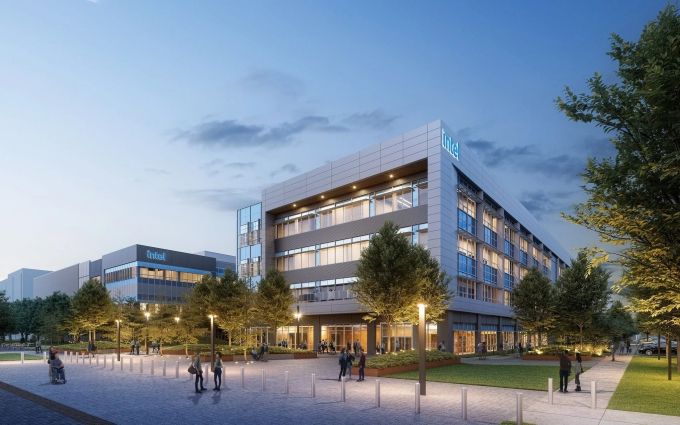The federal government originally wanted to subsidize Intel's new chip factory near Magdeburg with around 10 billion euros. The money comes from the Climate and Transformation Fund (KTF). However, since Intel wants to pause construction for at least two years in order to save money , the billions will apparently flow back into the federal budget, which is sure to be welcomed by the Ministry of Finance in view of tight budgets. Specifically, this concerns the first tranche of 3.96 billion euros, which was planned in the 2024 federal budget.
Finance Minister Christian Lindner (FDP) had already made similar demands last week. However, the Climate and Transformation Fund serves as a financing instrument of the Federal Ministry for Economic Affairs and Climate Protection, and so Federal Minister of Economics Robert Habeck (Greens) resisted allowing these funds to flow back until the very end. Further meetings are to follow up to the coalition committee meeting on Wednesday evening.

Intel's chip factory near Magdeburg (rendering)
The big question now is when does Intel want to make a concrete decision for or against the chip factory? If this decision is positive, how much will the federal government subsidize the construction? The previous negotiations can be thrown out and start again from the beginning. If Intel decides against a new building, what will happen to the space provided for the chip factory, which certainly cannot be used for other purposes?
At least it is unlikely to become any easier to build such a chip factory in the coming year or the year after – neither for Intel nor in terms of government subsidies.

 www.hardwareluxx.de
www.hardwareluxx.de
Finance Minister Christian Lindner (FDP) had already made similar demands last week. However, the Climate and Transformation Fund serves as a financing instrument of the Federal Ministry for Economic Affairs and Climate Protection, and so Federal Minister of Economics Robert Habeck (Greens) resisted allowing these funds to flow back until the very end. Further meetings are to follow up to the coalition committee meeting on Wednesday evening.

Intel's chip factory near Magdeburg (rendering)
The big question now is when does Intel want to make a concrete decision for or against the chip factory? If this decision is positive, how much will the federal government subsidize the construction? The previous negotiations can be thrown out and start again from the beginning. If Intel decides against a new building, what will happen to the space provided for the chip factory, which certainly cannot be used for other purposes?
At least it is unlikely to become any easier to build such a chip factory in the coming year or the year after – neither for Intel nor in terms of government subsidies.

Intel-Chipfabrik: Milliardensubventionen sollen in Bundeshaushalt zurückfließen - Hardwareluxx
Intel-Chipfabrik: Milliardensubventionen sollen in Bundeshaushalt fließen.
